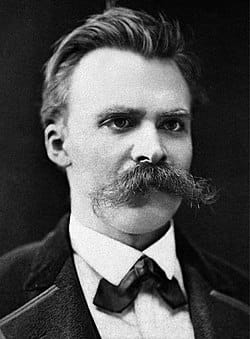PRÉ-PLATÔNICOS OU PRÉ-SOCRÁTICOS?
DOI:
https://doi.org/10.59488/tragica.v6i1.26670Keywords:
Nietzsche, Sócrates, filosofia, Grécia antigaAbstract
Este artigo tem por objetivo elucidar dois modos de Nietzsche situar Sócratesna história da filosofia: como o último filósofo puro, em continuidade com uma sequência que começa com Tales, e como o primeiro filósofo grego que rompe comseus antecessores, marcando o fim de um glorioso percurso e o início de um “duvidoso Iluminismo”. Pretendemos mostrar que não se trata de uma contradição na interpretação nietzschiana sobre Sócrates, já que ele utiliza duas perspectivas diferentes, mas não opostas.Downloads
Published
Issue
Section
License
Authors retain the copyright and grant the journal the right of first publication, with the work simultaneously licensed under the Creative Commons Attribution 4.0 International (CC BY) license. This license allows third parties to remix, adapt, and create from the published work, attributing authorship and initial publication in this journal. Authors are authorized to assume additional contracts separately, for non-exclusive distribution of the version of the work published in this journal (e.g. publishing in an institutional repository, on a personal website, publishing a translation, or as a book chapter), with recognition of authorship and initial publication in this journal.













